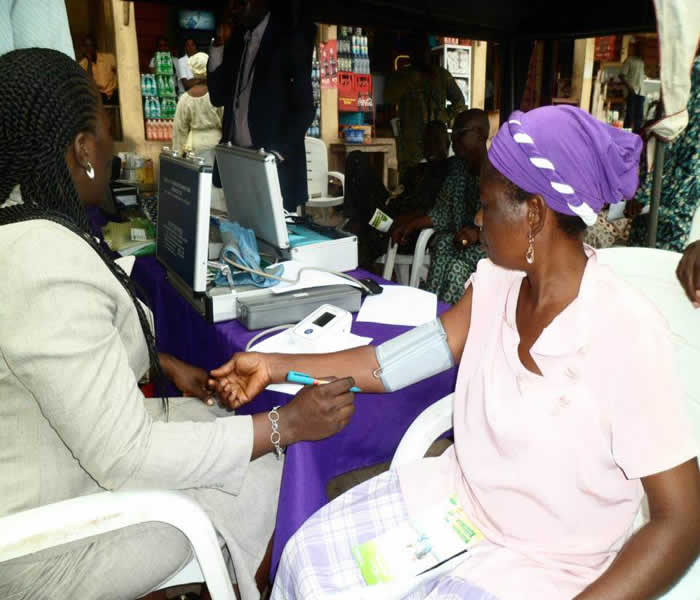There are no products in your shopping cart.
| 0 Items | £0.00 |


AS many as 30% of Nigerian adults are living with the threat of falling seriously ill from hypertension according to recent findings just published by the Nigerian Society of Hypertension (NSH).
Professor Simeon Isezuo, the NSH president, revealed these shocking statistics at a recent summit in Sokoto part of activities to celebrate the 2024 World Hypertension Day. He said the aim of the exercise was to create awareness and promote the early detection and treatment of hypertension.
“This is particularly significant in Nigeria where one of every three adults has hypertension. It has no symptoms until a serious damage has been done to the body. Many people with this condition are unaware of having it and only a few of those who are aware are on treatment while many of them don’t take their medicines regularly,” Professor Isezuo added.
While identifying hypertension as the leading cause of stroke, heart failure, chronic kidney disease and heart attack resulting in death or disability of persons, he said the sickness is, however, preventable and treatable. Calling on federal lawmakers to enact a law compelling companies to enforce appropriate label of salt, fat and sugar contents on food packages, he also called for traditional African physically active lifestyle including trekking, gardening and native African dances.
Professor Isezuo said: “The fact that hypertension was a rare condition among native Africans before western civilisation suggest that it is preventable. Obesity, sedentary lifestyle and diet rich in salt, fats and sugar are currently the main factors behind the rising burden of hypertension in Africa.
“I therefore, recommend consumption of traditional African food derived from roots, stem and leaves, regular exercise and optimum weight for prevention of hypertension. Regular blood pressure check should be encouraged in the family and ultimately, every family, household or home in Nigeria should have a blood pressure apparatus for regular blood pressure check.”
He also commended the federal government and her partners for incorporating care of hypertension into the primary health care programme as well as training and supervision of non-physician health workers. Professor Isezuo also encouraged families to support and encourage their members with hypertension to take their medicines regularly.